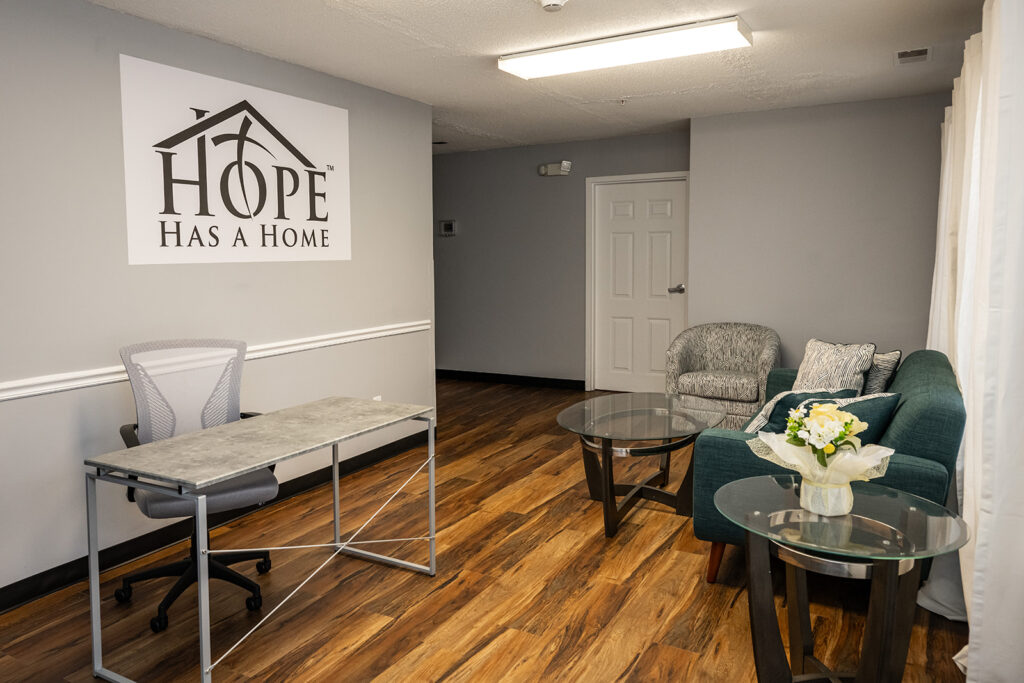Behind the battered steel door of room 1205, the playroom at the city’s family shelter at the old D.C. General hospital, holiday excitement was beginning to build.
It was Dec. 20 and Ahmiya Barnes, 5, was working on a card for her mom. She had the tree drawn and was getting ready to write the message. “I’m gonna spell ‘Merry Christmas,’ ” she explained. Other kids were making ornaments while down the hall, parents were quietly gathering gifts.
Meantime, volunteers from the Homeless Children’s Playtime Project were finalizing plans to transform room 1205 into a festive wonderland in time for a Dec. 22 party.
“Every kid should be able to celebrate Christmas,” said volunteer Shannon Slobodian.
Even with holiday magic in the air, an old hospital is not the easiest place to spend Christmas. But in these hard times, a room at D.C. General is also a gift. For every homeless family lucky enough to have a room there tonight, there is another still out in the dark somewhere, waiting.
In the wake of the nation’s long recession and housing crisis, cities all over America are coping with rising numbers of homeless families, according to a new report by the U.S. Conference of Mayors. Washington, D.C. is no exception. In this city, a total of 858 families, including more than 1,600 children were included in a 2011 Point-in-Time homeless count, a seven percent increase over 2010.
D.C. General is bearing the brunt of the crisis. There are currently rooms for 153 families at the hospital. But overwhelmed by needs, city officials are moving forward with plans to renovate space for 100 more families there. The expansion is expected to be completed by Feb. 1.
“I’m sure no one is pleased with this situation,’’ said City Councilmember Jim Graham at a homeless services oversight meeting on the cold evening of Dec 16. “But this option is preferable to stairwells, bus shelters, couch to couch and all the various places people are forced to exist in,” added Graham, chair of the council’s human services committee.
The directive to expand space at DC General came down from Mayor Vincent C Gray in early December. The mayor wrote in particular about his concerns for families designated ” priority one.” because of their critical needs.
“With these additional 100 shelter units, we anticipate being able to meet the needs of all priority one families seeking shelter,” the Mayor wrote to Graham.
During the week of Nov 28 through Dec 4, a total of 52 families applied for shelter at the city’s Virginia Williams for homeless families in their official search for shelter. Of those who applied, 23 were were determined to be “priority one.” Six hundred and forty five families with needs determined to be less urgent were included on the center’s “pending list ,“ and awaiting possible placement into shelters or other assistance.
D.C. General has served as the city’s emergency shelter for families since the squalid D.C Village shelter was shut down four years ago. And space at the facility has routinely been stretched. Two winters ago, the city was criticized for sheltering 200 families at the hospital, in space designed for 135. And last year, the Department of Human Servicspace for 100 families and to add beds for 75 single men at DC General. But then human services committee chair Tommy Wells, whose Ward 6 district inplan, complaining that the arrangement would result in a “homeless encampment” at the hospital.
With shelter beds lacking, the city, which is obligated by law to protect the homeless during freezing weather, has instead resorted to using motels and hotels to house the families when the hospital is full.
On one recent night, the city placed 51 families in hotels, said D.C. Department of Human Services Director David Berns. The rooms, at roughly $90 per night, are an expensive and unsatisfactory solution to the problem of family homelessness, Berns said.
“A hotel is our least favorite option. This is a stopgap,” he said.
Renovating 100 rooms at the hospital is expected to cost $900,000 and providing food,security and other services to the additional families will cost $335,000 per month, said Fred Swan, also of the Department of Human Services. The money, which will include unused federal dollars originally earmarked for Temporary Assistance for Needy Families, will be shifted from other accounts.
Berns said the city has been using rapid rehousing funds to help families at DC General leave the shelter and move into more stable apartments. But additional families just as quickly arrive, desperate and with nowhere to go to make the old hospital more than a temporary place to keep families out of danger.
“But they are there now,” said Graham. “And the city needs to come to terms with the job training, mental health and social needs of the families who are sheltering there now, and those who will be joining them before the winter is out.”
“We’ve got a big human project here. None of us wanted it. It was born of necessity,” he said. “There are a lot of people there with little kids, We want them to grow up to be contributing adults. That’s a huge responsibility.”








